Table of Contents
Remembering Juan Tizol (1900-1984), jazz trombonist and composer.

Best Sheet Music download from our Library.
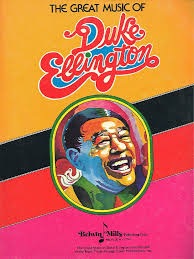
Juan Tizol (short biography)
Juan Tizol Martínez (22 January 1900 – 23 April 1984)[1] was a Puerto Rican jazz trombonist and composer. He is best known as a member of Duke Ellington’s big band, and for writing the jazz standards “Caravan”, “Pyramid”, and “Perdido”.
Juan Tizol was born on January 22, 1900 in the city of Vega Baja, Puerto Rico, into an illustrious family. The impact of the Tizols on the island is confirmed by several streets and squares that bear the name of eminent members of the lineage: doctors, politicians and musicians. In this last section is Manuel Tizol Márquez.
Come join us now, and enjoy playing your beloved music and browse through great scores of every level and styles!
Can’t find the songbook you’re looking for? Please, email us at: sheetmusiclibrarypdf@gmail.com We’d like to help you!
Manuel Tizol is considered by respected musicologists as the main personality of instrumental music in Puerto Rico during the first half of the 20th century, both in the classical and popular genres. In the first section he founded the San Juan Concert Society , which had an orchestra capable of performing the repertoires of all the great European masters of classical music. In addition, he established and directed the first Puerto Rico Symphony Orchestra official . In the second field he formed a dance orchestra and led the San Juan Municipal Band . With both groups he made recordings for the Columbia and Victor labels , becoming one of the pioneering national artists in the recording industry.
Manuel Tizol was Juan Tizol ‘s uncle and he took care of his musical training. He taught him to play the violin and euphonium, as well as to read and write music. From the age of 10, Juan was a member of his uncle’s dance orchestra, playing the violin or euphonium at all types of social events.
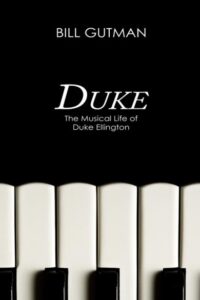
Please, subscribe to our Library.
If you are already a subscriber, please, check our NEW SCORES’ page every month for new sheet music. THANK YOU!
Around 1916, a German orchestra visited Puerto Rico and it is very possible that Juan Tizol heard a piston trombone played by a musician for the first time. Whatever the case, at that time it is documented that Juan played the aforementioned instrument in the orchestra of the Old San Juan Teatro Apolo .
In 1920, Juan Tizol was part of a band made up entirely of Puerto Rican musicians with the aim of touring the US. Once they arrived in Washington they were hired by the Howard Theater to play at the shows and to accompany the bands. silent movies Once they ran out of this work, the band disbanded.
Juan Tizol remained in Washington and there were several bands that required his services. One of them was the White Brothers’ Band , whose members included trumpeter Arthur Whetsol . This musician was the one who told Duke Ellington about Juan Tizol . The result was that he hired him for his orchestra. It was the year 1929 .
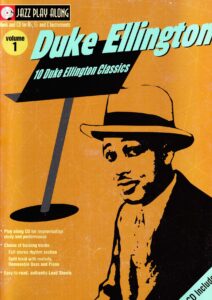
The first thing Duke Ellington did when Juan Tizol joined his orchestra was to name him “ chief copyist . ‘s music into sheet music ” He was in charge of transcribing Duke . The trumpeter, Rex Stewart , summed it up this way:
“ Tizol ‘s orchestra was an important wheel in the gear that moved Duke . He had to transcribe into sheet music the ideas that his boss tried to make clear. This was not an easy job since there were times when these avant-garde concepts could not be written. Tizol then wrote a kind of sketch and later spent hours trying to faithfully interpret what the “boss” had tried to explain to him and translate it into a score.”
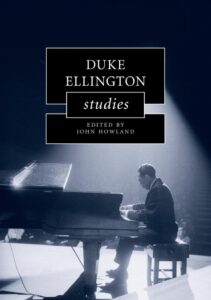
In 1933, musicologist HA Overstreet stayed with the Ellington Orchestra on one of its tours. As a result of his observations he wrote a book titled The Duke Reader in 1995. And among other things he says:
“…Juan Tizol had been busy writing the score for each musician’s arrangement of the trombone, saxophone and trumpet sections. Sometimes indicating them schematically for later elaboration. This approximate score served as a reference to resolve the discussions, since these appeared several times, until the entire arrangement was completed. These arguments, which are politely called exchanges of ideas, were pure and simple arguments. ‘s scores When the arrangement was finished and Tizol went from schematic to definitive , Ellington detected any deviation from them in the event that a musician did not adhere to them.
The first recording that Juan Tizol made (except for Back and Tan , for the short of the same title) was September 16, 1929. In that session, four songs were performed, one of them being titled The Duke Steps Out composed by Duke Ellington , Johnny Hodges and Cootie Williams .
Juan Tizol ‘s orchestra has an important role in the history of jazz, but not as an instrumentalist in Duke Ellington , but as a composer while he was a member of it.
I will start by naming his composition Caravan, which according to his own words he had already written before leaving Puerto Rico.
Tizol initially failed to appreciate the commercial potential of his song to the point that he sold his rights to Irving Mills ‘s manager, – who, apart from being Duke Ellington owned his own music publishing company – for $25. When Caravan became a big seller, Mills gave Tizol a portion of his royalties.

‘s first recording Caravan was made by a combo called Barney Bigard & His Jazzopaters in which all its members were also members of the Ellington orchestra , including himself: Cootie Williams , trumpet; Juan Tizol , valve trombone; Barney Bigard, clarinet; Harry Carney , baritone sax; Duke Ellington , piano; Billy Taylor, double bass; Sonny Greer , drums. The recording was made on December 19, 1936.
Duke Ellington & His Orchestra: Caravan (1937)
Duke Ellington ‘s composition at the moment had no intention of recording Tizol , but its exotic rhythm led him to perform it at the Cotton Club . The club parades were broadcast on radio throughout the country and listeners were dazzled by the song. This led Ellington to record it with his orchestra and this happened on May 14, 1937: Rex Stewart , cornet; Wallace Jones , Cootie Williams , trumpets; Lawrence Brown , Tricky Sam Nanton , Juan Tizol , trombones; Barney Bigard , clarinet; Johnny Hodges , Otto Hardwick , alto saxes, Harry Carney , baritone sax; Duke Ellington , piano; Fred Guy , guitar; Hayes Alvis or Billy Taylor , double bass; Sonny Greer , drums.
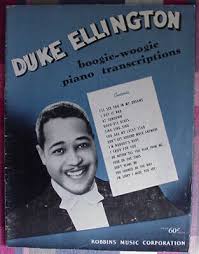
Caravan entered the top 20 and Duke Ellington kept it in the band’s repertoire until the rest of their days. recordings He left more than 100 Caravan . One of them a few weeks before his death.
It would be mid-1941 when several members of Duke Ellington ‘s orchestra were trying to find a jazz club in the alleys of New Orleans (where they had given a concert) and after kicking around for a while, Juan Tizol asked if anyone knew Where they were, one of the musicians answered that on Perdido Street (that’s how it is in Spanish). Tizol , whose native language was Spanish, smiled fangly when he realized that they were lost right on Perdido Street.
Duke Ellington – Perdido
The writer Stuart Nicholson relates in his book Reminiscing in Tempo: A portrait of Duke Ellington that Juan Tizol told him that he wrote a song while riding the train which he titled Perdido in reference to Perdido Street in New Orleans.
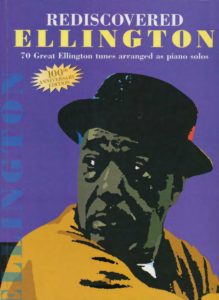
Perdido , given its harmonic structure, is one of the most used by jazz musicians of all eras and styles to perform in jam sessions .
band played it The first time the Ellington was in a radio program held on December 3, 1941. Almost two months later, on January 21, 1942, the aforementioned orchestra entered a Chicago studio where they recorded four songs. . One of them was Lost. When the single that contained it was released, it reached number 21 on the list of best-selling songs.
In all the books, essays, and articles about Juan Tizol, the confrontation he had with Charles Mingus always appears.
In February 1953, the double bassist joined Ellington ‘s band as a replacement. In the subsequent rehearsal, Juan Tizol gave him a sheet of music with the notes he had to play in a certain part of a song. When the time came Mingus ignored the score and played the notes an octave higher . This change infuriated Tizol and he went to the double bassist to tell him that if he wanted the double bass to sound like a cello he would have hired a cellist. A scuffle broke out between them, but it didn’t get any bigger.

However, Charles Mingus ‘s autobiography titled “ Less than a Dog” describes a completely different account of the confrontation. According to the double bassist , when Tizol addressed him, he blurted out: “You, like all blacks, don’t know how to read a score” (an absurd phrase when it comes to the Ellington orchestra) and also showed him a knife. Mingus did not give up and went to a wall where he grabbed a fire axe. Tizol ran away and then Mingus approached the chair where the trombonist was sitting and broke it in two with an ax blow.

‘s book When everything had calmed down, and according to Mingus , Ellington said to the double bassist: “For a moment I hoped that you had decided to start playing, but instead you broke Juan ‘s chair in two with a ax Seriously, Charles , that’s destructive. Everyone knows that Juan has a knife, but no one has taken him seriously. He likes to take it out and show it to people, you understand? I’ve never fired anyone, but you have to leave the band. I have enough problems already. Juan is an old problem, but I know how to handle him, but it seems that you have some new tricks that I don’t know about, so I am forced to ask you to be so kind and tender your resignation.
Charles Mingus ‘s band only lasted three days in Ellington . Scholars of jazz history give little credence to the account of the Tizol/Mingus incident as it appears in the double bassist’s book.
Juan Tizol left the Ellington Orchestra in 1944 because his wife, Rosebud , became ill and he wanted to spend more time with her at their home in Los Angeles. At that time, Harry James had his center of activities in that city and offered the trombonist a position in his orchestra, which he accepted. In the end the musical relationship between James and Tizol lasted until 1951. During that time they recorded several albums together. One of the songs was a composition written by both of them titled Keb-Lah and arranged by Tizol (which has a Caravan feel to it ). The recording was on July 5, 1946.

That same year, 1951, Juan Tizol ‘s band returned to his position in Ellington , and it was for a reason that the latter tells it this way in his book “Music is my Lover” from 1973:
“In 1951, Johnny Hodges , Lawrence Brown and Sonny Greer left the band at the same time. Shortly after, I traveled to Los Angeles and received a call from the Tizols : “Come have dinner with us.” At his house Tizol told me: “All you have to do is ask us and Louis Bellson , Willie Smith and I will leave Harry James to play with you.”
That was the solution they had in mind.
Naturally I was worried about who it might affect and who might be offended by something like that, since I had never had the habit of stealing musicians from other orchestras, but the situation at that moment was a real emergency. The truth is that that sounded too good to be true. If I had been talking to people I didn’t know I would have suspected that they were setting me up of some kind, but I knew Tizol and Rosebud perfectly well . In addition to having Juan Tizol again , Willie Smith was the best alto saxophone player in the world and everyone said the same about drummer Louis Bellson.
We put the plan in motion and everything went well.”
This second stage of Tizol with Ellington lasted three years, after which the trombonist settled on the North American West Coast where he remained until the end of his days. He made sporadic appearances live and in recording studios with the Harry James , Nelson Riddle and Louis Bellson orchestras . There was a third stage of Tizol with Ellington in the 60s and 61s in which he participated in some record recordings.
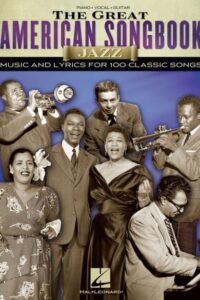
Juan Tizol left this world on April 23, 1984 in the city of Inglewood, California, two years after losing his wife Rosebud.
Please, subscribe to our Library.
If you are already a subscriber, please, check our NEW SCORES’ page every month for new sheet music. THANK YOU!
According to Will Friedwald, Frank Sinatra’s biographer, Tizol was in fact the first prominent orchestral composer to fuse Latin Music with Big Band Jazz Music.

To demonstrate that the musicians of Ellington’s orchestra, and he himself, learned very well the lessons on hot Latin rhythms that Juan Tizol taught them, I leave you the song composed by the trombonist titled Moon over Cuba and that Ellington and his boys recorded on July 2, 1941 in Hollywood.
Moon Over Cuba (1999 Remastered)
Duke Ellington and His Famous Orchestra.
Personnel:
Trombone: Joe Nanton Trombone: Lawrence Brown Trombone, Composer: Juan Tizol Clarinet, Tenor Saxophone: Barney Bigard Alto Saxophone, Clarinet: Johnny Hodges Alto Saxophone: Otto Hardwick Tenor Saxophone: Ben Webster Alto Saxophone, Baritone Saxophone, Clarinet: Harry Carney Piano, Composer: Duke Ellington Guitar: Fred Guy Bass: Jimmie Blanton Drums: Sonny Greer.
Juan Tizol Discography (on Wikipedia)
As sideman
With Louis Bellson
Journey Into Love (Norgran, 1954)
Drumorama! (Verve, 1957)
Music, Romance and Especially Love (Verve, 1957)
The Brilliant Bellson Sound (Verve, 1960)
Louis Bellson Swings Jule Styne (Verve, 1960)
Live in Stereo June 28, 1959, at the Flamingo Hotel Vol. 1 (Jazz Hour, 1992)With Duke Ellington
Ellington Uptown (Columbia, 1951)
Ellington '55 (Capitol, 1954)
Seattle Concert (RCA Victor, 1954)
Ellington Showcase (Capitol, 1956)
Liberian Suite and a Tone Parallel to Harlem (Columbia, 1956)
Piano in the Background (Columbia, 1960)
Selections from Peer Gynt Suites Nos. 1 & 2 and Suite Thursday (Columbia, 1960)
The Nutcracker Suite (Columbia, 1960)
Paris Blues (United Artists, 1961)With Harry James
Dancing in Person with Harry James at the Hollywood Palladium (Columbia, 1954)
Soft Lights, Sweet Trumpet (Columbia, 1954)
Harry James in Hi-fi (Capitol, 1955)
Jazz Session (Columbia, 1955)
Juke Box Jamboree (Columbia, 1955)
More Harry James in Hi-fi (Capitol, 1956)
Requests On-the-Road (MGM, 1962)With others
Count Basie, First Time! The Count Meets the Duke (Columbia, 1962)
Benny Carter, Cosmopolite (Norgran, 1954)
Nat King Cole, After Midnight (Capitol, 1956)
Nat King Cole, The Piano Style of Nat King Cole (Capitol, 1956)
Maxwell Davis, Compositions of Duke Ellington and Others (Crown, 1960)
Ella Fitzgerald, Get Happy! (Verve, 1959)
Ella Fitzgerald, Ella Fitzgerald Sings the Irving Berlin Song Book Vol. 1 (Verve, 1960)
Peggy Lee, The Man I Love (Capitol, 1957)
Peggy Lee, Jump for Joy (Capitol, 1958)
Frank Sinatra, Frank Sinatra Sings for Only the Lonely (Capitol, 1958)Juan Tizol Discography (on the Discography of American Historical Recordings)
| Artist or Composer / Score name | Cover | List of Contents |
|---|---|---|
| Mary Lou Williams Marys Special Piano Solo Transcription Sheet Music Partition |
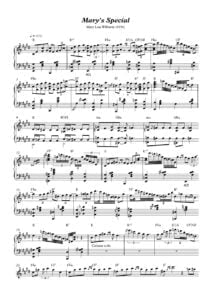 |
|
| Mary Lou Williams No Title Blues Transcription | Mary Lou Williams No Title Blues Transcription | |
| Mary Lou Williams Rosa Mae Transcription | Mary Lou Williams Rosa Mae Transcription | |
| Mary Poppins (The Broadway Musical) Piano Vocal score Richard and Robert Sherman |
 |
Mary Poppins (The Broadway Musical) Piano Vocal score Richard and Robert Sherman |
| Mary Poppins Broadway Score (Piano & Vocal) |
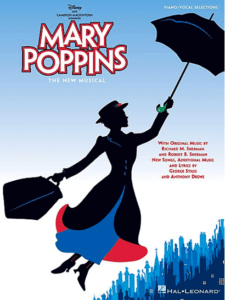 |
Mary Poppins Broadway Score (Piano & Vocal) |
| Mary Poppins Overture – Piano Duet | Mary Poppins Overture – Piano Duet | |
| Mary Poppins The Broadway Musical Piano Vocal Selections |
 |
Mary Poppins The Broadway Musical Piano Vocal Selections |
| Mary Poppins The New Musical Easy Piano Vocal Chords |
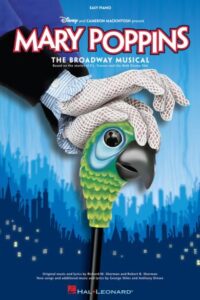 |
Mary Poppins The New Musical Easy Piano Vocal Guitar Chords |
| Mary Rodgers The Boy From from The Mad Show |
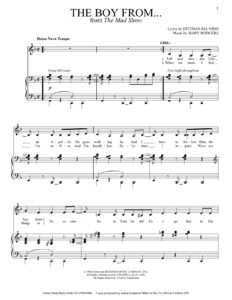 |
|
| Mascagni – Intermezzo – Cavalleria Rusticana (Piano Solo) | Mascagni – Intermezzo – Cavalleria Rusticana (Piano Solo) | |
| Mascagni Cavalleria Rusticana – Intermezzo Transcription Piano solo | Mascagni Intermezzo | |
| Massenet Méditation De Thaïs (Piano Solo Arr.) (Musescore File).mscz | ||
| Massenet Meditation from Thais (Piano Transcription) |
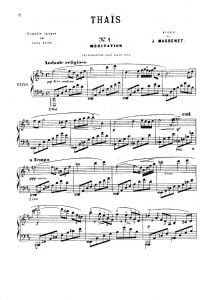 |
|
| Massenet, Méditation de Thaïs (piano solo arr.) | Massenet, Méditation de Thaïs (piano solo arr.) | |
| Massive Attack – Teardrop | ||
| Mastering Chord Melody – The Complete Jazz Guitar Method by Jody Fisher (with MP3 audio tracks and Tablature) |
 |
Mastering I Beginning Jazz Guitar The Complete Jazz Guitar Method by Jody Fisher (with audio MP3) |
| Mastering Improvisation – The Complete Jazz Guitar Method by Jody Fisher (with audio MP3 audio tracks and Tablature) |
 |
Mastering II Beginning Jazz Guitar The Complete Jazz Guitar Method by Jody Fisher (with audio MP3) |
| Masterpieces of piano music, by Albert E. Wier (1918) | Masterpieces of piano music | Masterpieces Of Piano Music (1918)-contents |
| Masterpieces Of Western Music Course Guide Modern Scholar (Book) |
 |
|
| Masters Of Rhythm Guitar By Joachim Vogel |
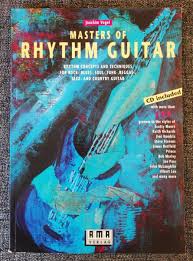 |
Masters Of Rhythm Guitar By Joachim Vogel |
| Masters Of Rock Guitar The Peter Fischer |
 |
Masters Of Rock Guitar The Peter Fischer |
| Masters Of The Plectrum Guitar Mel Bay |
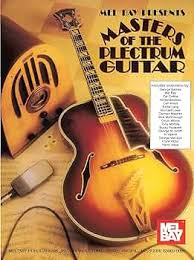 |
Masters Of The Plectrum Guitar Mel Bay |
| Matchbox20 – 3 Am | ||
| Matchbox20 – Unwell | ||
| Materia Primoris The X-Files Theme (Main Title) Piano Solo Arr. By Mark Snow (Musescore File).mscz | ||
| Materials And Techniques Of Twentieth-Century Music By Stefan Kostka 3rd Edition (Book) |
 |
|
| Matilda The Musical (Roald Dahls ) Music From The Netflix Film Piano Vocal Guitar |
 |
Matilda The Musical (Roald Dahls ) Music From The Netflix Film Piano Vocal Guitar |
| MATRIX Songbook Selections Piano Vocal Chord |
 |
MATRIX Songbook Selections Piano Vocal Chord |
| Matt Bianco Collections Whose Side Are You On Piano Vocal Guitar |
 |
Matt Bianco Collections Whose Side Are You On Piano Vocal Guitar |
| Matt Christensen – Good Times – Superliminal (Original Game Soundtrack) |
 |
|
| Matt Christensen – Hopeful – Superliminal (Original Game Soundtrack) |
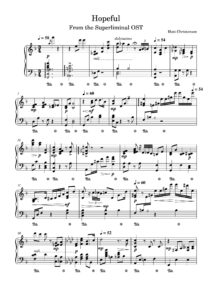 |
|
| Matt Christensen – Wonder – Superliminal (Original Game Soundtrack) |
 |
|
| Matt Herskowitz Bach A La Jazz (Piano Solo) | Matt Herskowitz Bach A La Jazz (Piano Solo) | |
| Matthay, Tobias Elves (Die Elfen) | ||
| Matthay, Tobias – The Visible And Invisible In Piano Technique (1947) | The Visible And Invisible In Pianoforte Technique (By Tobias Matthay) | |
| Matthay, Tobias The First Principles Of Pianoforte Playing (1905) | Book Theory | |
| Mattia Cupelli Touch (Easy Piano Sheet Music) |
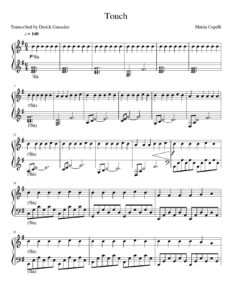 |
|
| Matz Carol – The Sorcerer |
 |
|
| Maurice Jarre Francis Webster Doctor Zhivago Somewhere My Love Lara’s Theme |
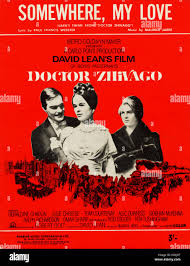 |
Jarre – Somewhere My Love (from Doctor Zhivago) |
| Maurice Jarre Somewhere My Love Laras Theme From Doctor Zhivago Piano Vocal Guitar |
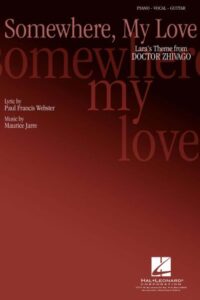 |
|
| Maurice Lieberman Keyboard Harmony and Improvisation Vol 1 |
 |
|
| Max Payne 3 – Main Menu Themes (4) Piano Solo sheet music |
 |
|
| Max Payne 3 Late Goodbye Piano Sheet Music |
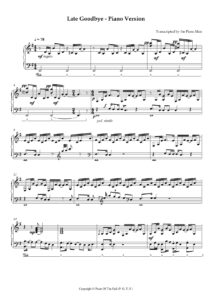 |
|
| Max Payne Game Original Theme (Piano) |
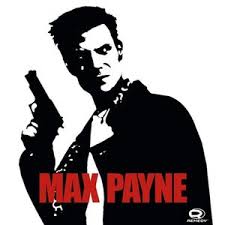 |
|
| Max Payne Main Theme Piano Solo Kärtsy Hatakka & Kimmo Kajasto (Piano Solo) |
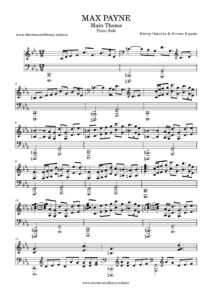 |
|
| Max Payne Main Theme Piano Solo Kärtsy Hatakka & Kimmo Kajasto.mscz | ||
| Max Reger Modulation (book) |
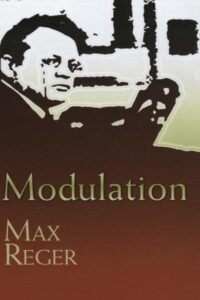 |
|
| Max Richter On The Nature Of Daylight (Piano Solo arr.) |
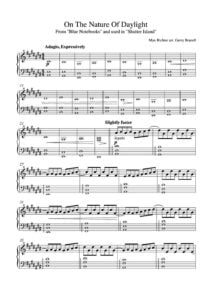 |
|
| Max Richter The Four Seasons Recomposed (Complete) Full Score for Orchestra |
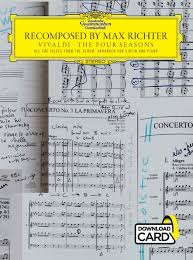 |
Max Richter The Four Seasons Recomposed (Complete) |
| Max Richter – A Catalogue of Afternoons |
 |
|
| Max Richter – Departure Lullaby (from The Leftlovers) | Max Richter – DepArture Lullaby | |
| Max Richter – Horizon Variations (Musescore File).mscz | ||
| Max Richter – Horizons Variations |
 |
|
| Max Richter – Lamentation for a lost Life from TABOO TV Series (Peaceful Piano Solos) | Max Richter – Lamentation for a lost Life from TABOO TV Series (Peaceful Piano Solos) | |
| Max Richter – Prelude 6 |
 |
|
| Max Richter – Vladimir’s Blues |
 |
|
| Max Richter – Vladimir’s Blues guitar arr. |
 |
|
| Max Richter – Vladimir’s Blues Guitar Arr. (Musescore File).mscz | ||
| Max Richter – Written on the sky | Max Richter written on the sky | |
| Max Richter A Catalogue Of Afternoons (Musescore File).mscz | ||
| Max Richter A Lamenting Song |
 |
|
| Max Richter Book Piano Works |
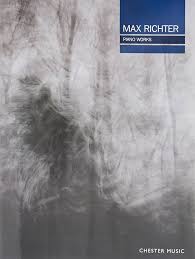 |
Max Richter Book Piano Works |
| Max Richter Dream 1 By Max Richter From Sleep Befre The Wind Blows It All Away | Max Richter Dream 1 By Max Richter From Sleep Befre The Wind Blows It All Away | |
| Max Richter Embers |
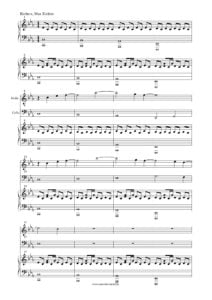 |
|
| Max Richter H In New England |
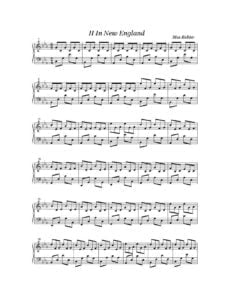 |
|
| Max Richter Infra 3 |
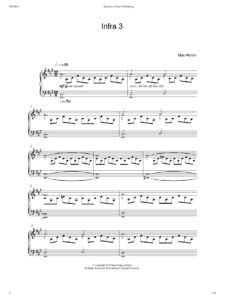 |
|
| Max Richter November For Violin And Piano |
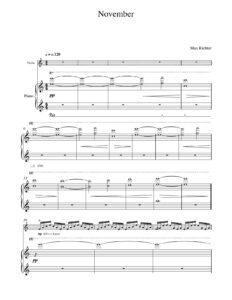 |
|
| Max Richter Only Questions_ |
 |
|
| Max Richter Summer Recomposed Vivaldi’s Four Seasons Piano Solo |
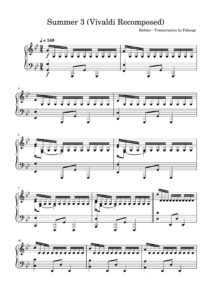 |
|
| Max Richter Taboo Piano Solo Sheet Music |
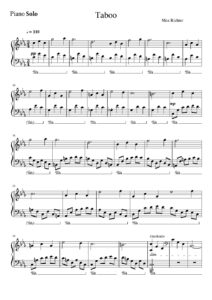 |
|
| Max Richter The Departed (Leftovers ) | Max Richter The Leftovers | |
| Max Richter The End Of All Our Exploring From The Leftlovers |
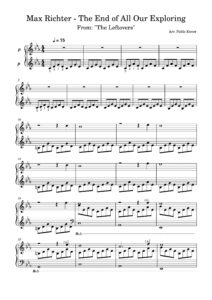 |
|
| Max Richter The Twins |
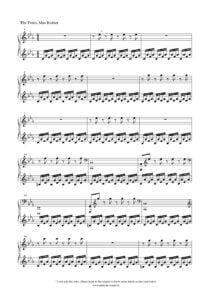 |
|
| Max Richter Winter Recomposed Vivaldi’s Four Seasons Piano Solo |
 |
|
| Max Steiner – My own true love (Gone With The Wind)- Tara’s Theme (Piano, voice & guitar) |
 |
|
| Max Steiner A Summer Place |
 |
|
| Maxence Cyrin Mer De Velours From Aurora | Maxence Cyrin Mer De Velours From Aurora | |
| Maxime Le Forestier San Fransico (Piano Solo And Piano Vocal) |
 |
|
| Maxime Le Forestier – La Petite Fugue pour 2 Voix |
 |
|
| Maxime Le Forestier 40 Chansons |
 |
|
| Maxime Le Forestier Collection Quelques Chansons Mises A Part | Maxime Le Forestier Collection Quelques Chansons Mises A Part | |
| Maxime Le Forestier Passer Ma Route Songbook |
 |
|
| Maxime Le Forestier Recueil Special Piano 3 Partitions (Transcription Michel Leclerc) |
 |
|
| Maximo Diego Pujol – Suites Del Plata Guitarra guitar |
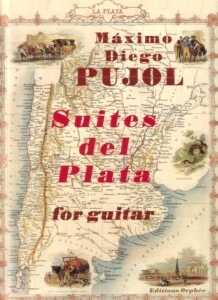 |
|
| Maximo Diego Pujol Los Caminos De La Luz Guitar Solo |
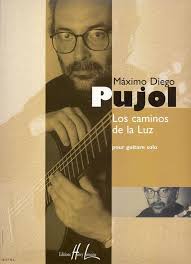 |
|
| Maxwell Eckstein Early Technical Studies From Schmitt And Hanon |
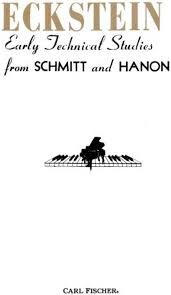 |
|
| Maxwell Eckstein Rhapsodie |
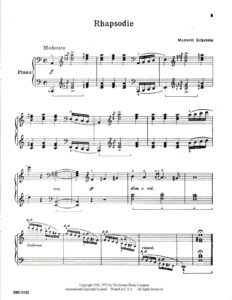 |
|
| Maxwell Eckstein Spooks |
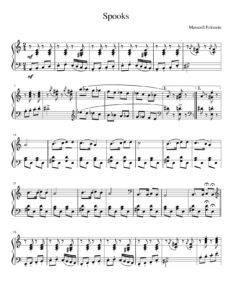 |
|
| Maybelle Carter Carter Style Guitar Solos |
 |
Maybelle Carter Carter Style Guitar Solos |
| Mayumi Kato – Morning Coffee | Mayumi Kato – Morning Coffee | |
| Mayumi Kato Cherry Blossoms Shower In Spring Wind |
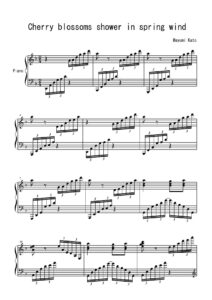 |
|
| Mayumi Kato Deep Secret Op .2 no. 2 |
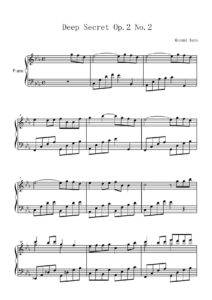 |
|
| Mayumi Kato Destiny |
 |
|
| Mayumi Kato Etude | ||
| Mayumi Kato Forbidden fruit | ||
| Mayumi Kato Guilty |
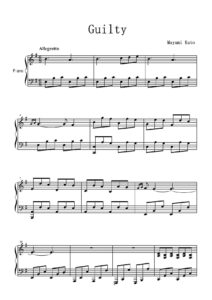 |
|
| Mayumi Kato KYOTO | Mayumi-Kato-KYOTO 1st page | |
| Mayumi Kato Last Scene |
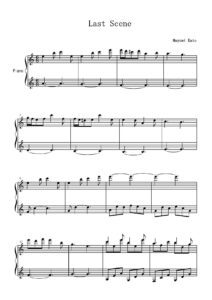 |
|
| Mayumi Kato LIAR |
 |
|
| Mayumi Kato Old Days |
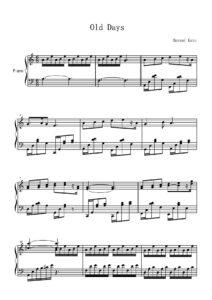 |
|
| Mayumi Kato Op.11 Geisha |
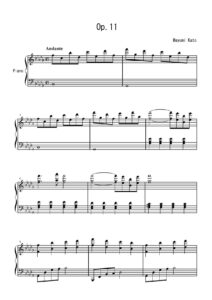 |
|
| Mayumi Kato Orange Moon |
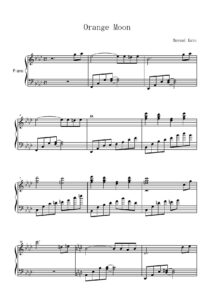 |
|
| Mayumi Kato Rainy Day | Mayumi-Kato-Rainy-Day 1st page | |
| Mayumi Kato Red |
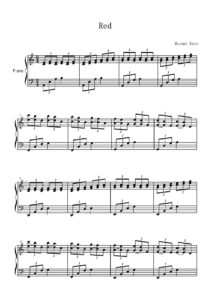 |
|
| Mayumi Kato Romance Op7-2 | Mayumi-Kato-Op7-2-never 1st page | |
| Mayumi Kato Say Goodbye |
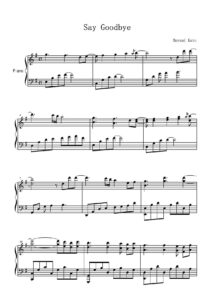 |
|
| Mayumi Kato Secret Garden |
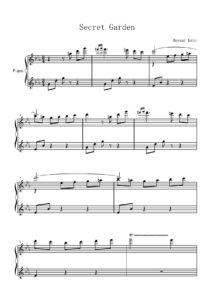 |
|
| Mayumi Kato Silver Moon |
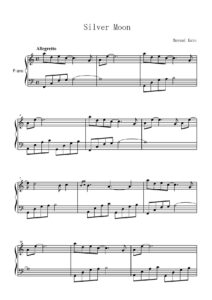 |
|
| Mayumi Kato Snow | Mayumi Kato Snow | |
| Mayumi Kato Snow Land | Mayumi Kato Snow Land | |
| Mayumi Kato The Bamboo Princess | ||
| Mayumi Kato The Prayer |
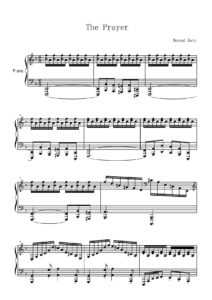 |
|
| Mazurka Cocktail | ||
| Mazurkas Cocktail | ||
| McCoy Tyner – There Is No Greater Love Full Score |
 |
|
| McCoy Tyner Blues on the corner | McCoy Tyner Blues on the corner | |
| McCoy Tyner Jazz Giants Artist Transcriptions |
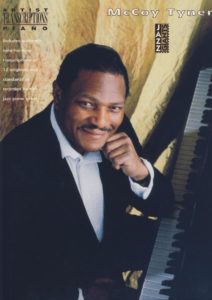 |
McCoy Tiner transcriptions |
| McCoy Tyner Jazz Improvisation |
 |
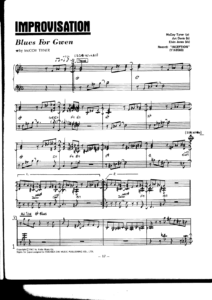 |
| McCoy Tyner Just Knock On My Door | McCoy Tyner Just Knock On My Door | |
| McCoy Tyner Plays Standards Transcriptions | McCoy Tyner play standards | |
| McCoy Tyner Pursuance | McCoy Tyner Pursuance | |
| McCoy Tyner Transcriptions Inception to now |
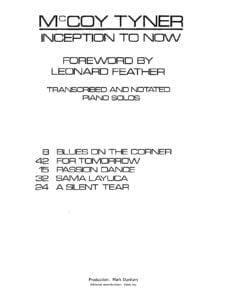 |
|
| Mcfly – All About You | ||
| Me cuesta tanto olvidarte (Mecano) | ||
| Meant to Be Sheet Music – Florida Georgia Line sheet music BEBE REXHA |
 |
|
| Meat Loaf – Anything For Love | ||
| Mecano Hijo De La Luna Partitura Completa piano solo |
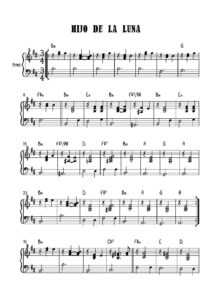 |
|
| Meditative Piano, Relax With – 40 Beautiful Pieces selected by Samantha Ward |
 |
Meditative Piano, Relax With 40 Beautiful Pieces |
| Medtner – 2 Cadenzas to Beethoven’s 4th Piano Concerto op. 58 – Score |
 |
|
| Medtner – Zwei Märchen (2 Tales) Op. 20 |
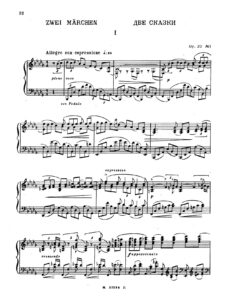 |
|
| Meet Joe Black – Forbidden Love – Thomas Newman |
 |
|
| Meet John Doe (The Musical) Piano Vocal By Music By Andrew Gerle Lyrics By Eddie Sugarman | Meet John Doe (The Musical) Piano Vocal By Music By Andrew Gerle Lyrics By Eddie Sugarman | |
| Meg – Crimes of the heart OST (Georges Delerue) | ||
| MEGADETH – RISK (Guitar songbook) |
 |
MEGADETH – RISK (Guitar songbook) |
| Megadeth Greatest Hits Back To The Start |
 |
Megadeth Greatest Hits Back To The Start |
| Meglio stasera (It had better be tonight) The Pink Panther OST | ||
| Mel Bay – Classic Blues Licks For Electric Guitar (Play Along With Audio MP3 with Tablature) By Fred Sokolow |
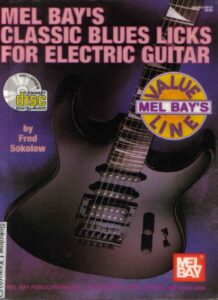 |
Classic Blues Licks |
| Mel Bay – Music Theory For The Rock Guitarist – Guitar Play Along With Mp3 Audio by Ben Bolt with Tablature |
 |
Guitar Lessons – Music Theory For The Rock Guitarist |
| Mel Bay – Rock Rhythms For Guitar (Play Along With Audio Mp3) by Mike Christiansen |
 |
Mel_Bay’s_Rock_Rhythms_For_Guitars |
| Mel Bay Art Of Rasgueado (Ioannis Anastassakis) Guitar Tablature |
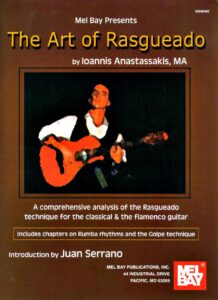 |
|
| Mel Bay Complete Giuliani Studies |
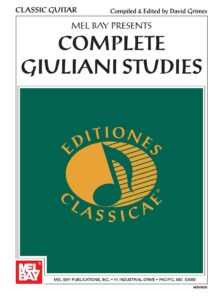 |
|
| Mel Bay Modern Guitar Method Complete Edition Vol. 1 to 7 with audio and video download |
 |
|
| Mel Bay’s 101 Jazz Guitar Licks with Tablature |
 |
|
| Mel Bonis Album Pour Les Tout Petits 20 Pieces Pour Piano |
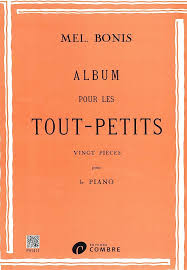 |
|
| Mel Bonis Cinq Pieces Pour Piano |
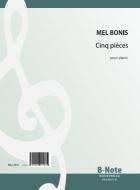 |
|
| Mel Bonis Scènes Enfantines pour piano |
 |
|
| Mel Brooks – Young Frankenstein The Musical by Mel Brooks & thomas Meehan |
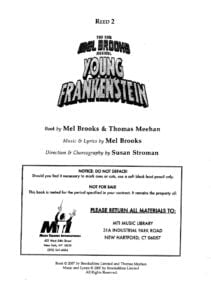 |
|
| Mel Brooks, The Songbook 23 Songs From Movies And Shows With A Preface By Mel Brooks 25 songs from movies and shows |
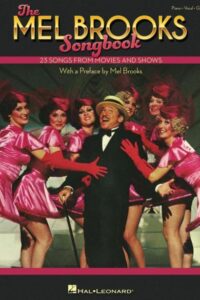 |
Mel Brooks, The Songbook 23 Songs From Movies And Shows With A Preface By Mel Brooks 25 songs from movies and shows |
| Melanie Laurent – Fin |
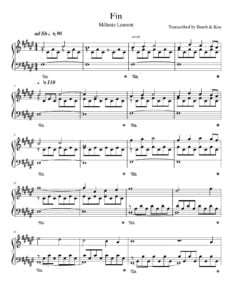 |
|
| Melanie Laurent Debut |
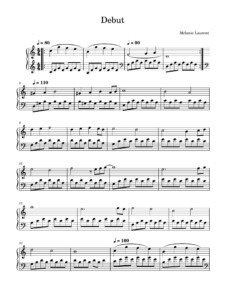 |
